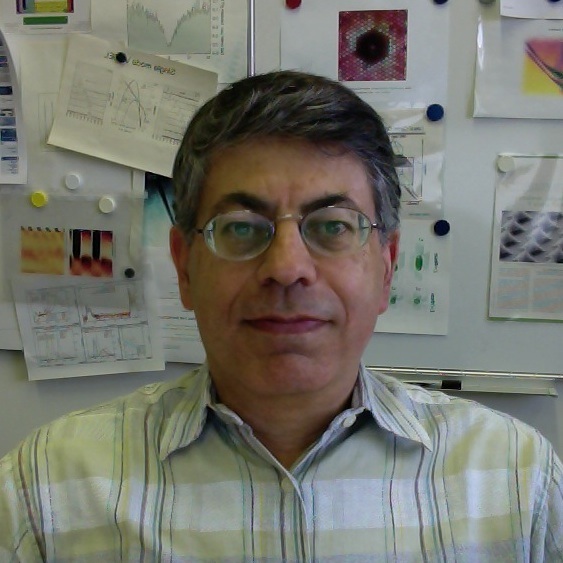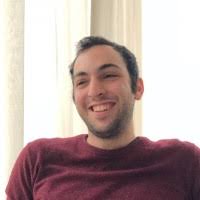About CONF-CIAP 2023
Mathematics have been attached with great importance as a basis of various subjects. Applied mathematics and statistics are widely used to tackle problems in areas including engineering, physics, medicine, business, and so on. This conference also focuses on theoretical physics and applied physics, as well as computing innovation. It is hoped that inter-disciplinary studies could promote development in relevant fields and seek solutions to the problems that can hardly be solved in the past. The conference is supported by faculty members from Bournemouth University and Oxford Brookes University.
The International Conference on Computing Innovation and Applied Physics is an annual academic conference. It aims at building an international platform for the communication and academic exchange among participants from various fields related to mathematics, physics, and computing innovation. Here, researchers are welcomed and encouraged to share their research progress and inspirations. It is a great opportunity to promote academic communication and collaboration worldwide.
Best Papers
Thanks to the efforts and contribution of all sides, CONF-CIAP 2023 has been successfully held online. We have received plenty of high-quality papers from authors worldwide. After several rounds of peer review, the following paper has been selected as the best paper of CONF-CIAP 2023
-
The Impact of AGV Application on Port Operating Efficiency
by Qiuyu Chen -
The Study for Optimization Strategies on the Performance of DCGAN
by Sijia Li -
Improved Value Iteration Network for Path Planning
by Shijia Chai
It is a real pleasure to receive and publish so many excellent works in the conference proceedings. We are looking forward to more fine pieces submitted to future conferences.
Topics
The topics of interest include but are not limited to:
- Artificial Intelligence
- Cluster Computing
- Design and Analysis of Algorithms
- Machine Learning
- Mobile Computing
- Scientific Computing
- Scientific Visualization
- The Internet of Things
- Advanced Numerical Algorithms
- Deep Learning
- Image Processing
- Robotics and Automation Sciences
- Sensors and Sensor Networks
- Semiconductors
- Web and Grid based Simulation and Computing
- Applied Partial Differential Equations
- Integral Equations
- Numerical Analysis
- Probability Theory
- Mathematical Methods
- Nonlinear Problems in Mechanics
- Game Theory
- Control Theory
- Image Processing
- Cryptography
- Fluid Dynamics
- Fuzzy Mathematics and Its Applications
- Algebra and Its Application
- Geometry
- Optimization and Operational Research
- Statistics
- Stochastic Processes
- Baysian Inference
- Regression Analysis Estimation Theory
- Econometrics
- Sampling Theory
- Planning and Scheduling
- Discrete Applied Mathematics
- Algorithms
- Neural Networks
- Astrophysics
- Astrophysics
- Atomic, Molecular and Optical Physics
- Black Hole Thermodynamics
- Condensed Matter Physics
- Conservation of Energy
- Dark Energy and Matter
- Electromagnetism and Field Theory
- Gamma-ray Emission in the Universe
- General Relativity
- Gravitational Waves
- Hadron Structure, Spectroscopy and Dynamics
- High Energy Physics
- Non-perturbative Field Theory
- Optical Model
- Particle Physics
- Physical Cosmology
- Precision Spectroscopy and Frequency Standards
- Soft Matter Physics
- Solid Mechanics and Special Relativity
- Theory of Astronomical Navigation
- Theory of Astronomical Time Keeping
- Accelerator Physics
- Accelerator Research and Development
- Acoustics, Noise and Vibration
- Applications of Particle Trapping
- Biophysics, Medical Physics
- Detectors and Data Handling
- Engineering Physics
- Instrumentation and Control Components
- Magnetic Devices and Materials
- Materials Physics
- Mechanics, Rheology and Tribology
- Nano and Metamaterials
- Neuromorphic Computing
- Nuclear Physics
- Quantum Chromodynamics and Quantum Computers
- Spin Dynamics
- Statistical Mechanics
- Stealth Technology
- Storage Ring Physics
- Systems and Automation Thermodynamics
Important Dates
Conference Date
March 25, 2023
Submission & Payment Deadline
| Type | Early Bird Submission | Regular Submission | Late Submission |
|---|---|---|---|
| Paper Submission | November 4 | January 6 | March 17, 2023 |
| Notification of Acceptance | 2 weeks | 2 weeks | 2 weeks |
| Registration & Payment | November 18 | January 20 | March 31, 2023 |
Review Process
The submission will first be reviewed for its topic and length, then go through an originality check. The peer-review process will begin soon after the paper is found to be qualified. The paper will be sent to have a double-blind peer review by 2 reviewers. They will judge the paper based on the theme, coverage, innovation, integrity, depth, and language. If the paper is accepted, notification of acceptance and review comments will be sent to the author via email. The actual review time may be different under certain situations.
History
The International Conference on Computing Innovation and Applied Physics (CONF-CIAP 2022) was held online from August 4 to 9. This conference was planned to be held at Stanford but finally moved online due to the pandemic. The accepted papers will be published in Journal of Physics: Conference Series (JPCS) (Print ISSN 1742-6588) or Theoretical and Natural Science (TNS) (Print ISSN 2753-8818). Professor Sanjay Ranka from University of Florida and Professor Tommaso Cremaschi from University of Southern California (USC) have given keynote speeches on related topics of mathematics, physics, and computer science. Also our authors were invited to deliver an oral presentation at the virtual conference. Questions from the audience were collected and answered by the presenters. This conference provided the participant good opportunities to exchange ideas and build networks, and it will lead to the further collaborations between both universities and other societies.
Publication
The paper accepted by CONF-CIAP 2023 will be published in Journal of Physics: Conference Series (JPCS) (Print ISSN 1742-6588) or Theoretical and Natural Science (TNS) (Print ISSN 2753-8818), which will be submitted to EI Compendex, Conference Proceedings Citation Index (CPCI), Crossref, CNKI, Portico, Inspec, Scopus, Google Scholar and other databases for indexing.
Submission & Template
Please follow this link to find more info & requirements about submitting your paper
Submission InfoWelcome to join us
We welcome prospective scholars to submit their novel research or technological contributions to CONF-CIAP 2023 and share their valuable experiences with other scientists and students from all over the world.
Who will attend
Principal investigators, scientists, professors, engineers, managers, R&D professionals, postdoctoral researchers, and graduate students involved in Computing Innovation and Applied Physics will attend and benefit from CONF-CIAP 2023.
Join as reviewer
We sincerely welcome professors, associate professors, lecturers and other experts in the areas of Computing Innovation and Applied Physics to join the conference as reviewers. Please feel free to email us at info@confciap.org to request further information if you are interested. Your request will be processed in 5 workdays.
Join as presenter
If you are interested in giving a presentation at the conference without publishing your paper in the proceeding, you can attend CONF-CIAP 2023 as a presenter. As a presenter, you need to submit the abstract and title of your presentation before registration. For further information, please feel free to contact us at info@confciap.org.
Join as audience
CONF-CIAP 2023 is an unmissable conference. It is a good opportunity and an effective method to meet many renowned experts and researchers in the fields of Computing Innovation and Applied Physics. You are more than welcome to attend this great event. For further information, please feel free to contact us at info@confciap.org.
Speakers

Eli Kapon, Ph.D.
Eli Kapon received his Ph.D. in physics from Tel Aviv University, Israel in 1982. He then spent two years at the California Institute of Technology, Pasadena, as a Chaim Weizmann Research Fellow, where he worked mainly on phase-locked arrays of semiconductor lasers. From 1984 till 1993 he was with Bellcore, New Jersey, first as member of technical staff, and from 1989 as District Manager. At Bellcore, he worked on integrated optics in III-V compounds and on low-dimensional semiconductor nanostructures, particularly quantum wires and quantum dots. He managed the Quantum Structures District and the Integrated Optoelectronics District at Bellcore from 1989 till 1992 and from 1992 till 1993, respectively. In 1993 he was appointed Professor of Physics of Nanostructures at the Physics Department of the Swiss Federal Institute of Technology in Lausanne (EPFL), where he heads the Laboratory of Physics of Nanostructures. In 1999-2000 he spent his sabbatical as Sackler Scholar at the Mortimer and Raymond Sackler Institute of Advanced Studies in Tel Aviv University, Israel. During that period he helped establishing the Tel Aviv University Center for Nanoscience and Nanotechnology and served as its first Director from 2000 to 2002. In 2001 he founded the start up BeamExpress and has been serving as its Chief Scientist. He is currently serving as Director of the Institute of Quantum Electronics and Photonics in the Faculty of Basic Sciences at EPFL. His research interests include self-organization of nanostructures, optical properties and electron transport in low-dimensional quantum structures, quantum wire and quantum dot lasers, photonic crystals and vertical cavity surface emitting lasers. He is author or co-author of >300 journal articles, >10 patents, and editor of two books on semiconductor lasers. Prof. Kapon is Fellow of the Optical Society of America, the Institute of Electrical and Electronics Engineers, and the American Physical Society of America, and a recipient of a 2007 Humboldt Research Award.

Sanjay Ranka, Ph.D.
Sanjay Ranka is a Distinguished Professor in the Department of Computer Information Science and Engineering at University of Florida. From 1999-2002, as the Chief Technology Officer at Paramark (Sunnyvale, CA), he developed a real-time optimization service called PILOT for marketing campaigns. Sanjay has also held positions as a tenured faculty member at Syracuse University, academic visitor at IBM and summer researcher at Hitachi America Limited. He is a fellow of the IEEE, AAAS and AAIA (Asia-Pacific Artificial Intelligence Association) and a past member of IFIP Committee on System Modeling and Optimization. He won the 2020 Research Impact Award from IEEE Technical Committee on Cloud Computing. He is an associate editor-in-chief of the Journal of Parallel and Distributed Computing and an associate editor for ACM Computing Surveys, IEEE/ACM Transactions on Computational Biology and Bioinformatics, Sustainable Computing: Systems and Informatics, Knowledge and Information Systems, and International Journal of Computing. Additionally, he is a book series editor for CRC Press for Bigdata. He has coauthored one book, four monographs, 300+ journal and refereed conference articles. His work has received 14,500+ citations with an h-index of 61 (based on Google Scholar). He has consulted for several startups and Fortune 500 companies.
The focus of his current research is the development of efficient computational methods and data analysis techniques to model scientific phenomenon, and practical applications of focus are improvements to the quality of healthcare and the reduction of traffic accidents. A core aspiration of his research is to develop novel algorithms and software that make an impact on the application domain, exploiting the interdependence between theory and practice of computer science.
Title of Speech: Edge Based AI for Smart Transportation

Tommaso Cremaschi, Ph.D.
Tommaso Cremaschi is an Assistant Professor (RTPC) of Mathematics in Department of Mathematics at University of Southern California. He was a Viterbi Post-Doc at MSRI at the program: Random and Arithmetic Structures in Topology. Before that he got the PhD at Boston College. He is interested in low dimensional topology. In particular he has been studying hyperbolic 3-manifolds with non-finitely generated fundamental group. He is also interested in higher Teichmüller Theory and counting problems on surfaces.
Title of Speech: Volume of Random Geodesic Complements

